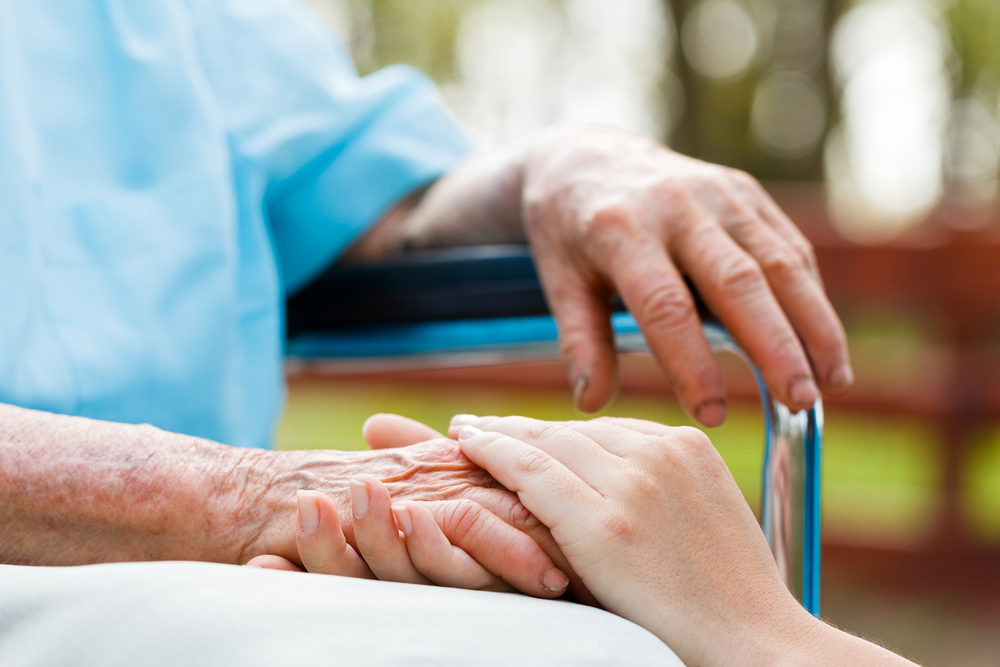14 Nov 2016
Caregivers – It is Okay To Have Down Days
As a caregiver, your life is dedicated to helping another person. There’s no doubt that the job you do is important, and that you’re able to make a real difference by being there for that person and helping him or her with the necessary tasks to live daily life. At the same time, being so invested in your job can be damaging – it can take a toll on your health, your personal life as well as your emotional wellbeing. Many caregivers get so caught up in what they are doing that they don’t stop and notice the way that their job is affecting them, while others feel guilty for thinking of themselves when their task is to focus on helping someone else. Adding to this is the issue of attitude: it may seem sometimes like you have to be 100 percent ready to go all the time, always cheerful and always ready to give it your best no matter what you are going through personally.
It is important to remember that caregivers are people too. Just because your job is to help someone else does not mean that you can – or should – suddenly forget about yourself and your needs. Let’s address the struggles that caregivers go through, and how to get past them, one by one.
First, the idea that you need to put on the cheerful face all the time is simply not true.
It is perfectly okay to have “down days” – times when you’re just not feeling up to the task, or days when you don’t necessarily see everything in a positive light. Though you want to make sure that not all of your days turn out like this, you shouldn’t feel the need to suppress unhappiness in order to fit a mold, as that will only serve to make you more uncomfortable.
Second, the problem of guilt – why should you bother with your own desires when someone else clearly needs your attention more?
The answer is simply that you matter – you’re a human being, with your own problems and your own wants. You deserve to get the benefit of self-care as much as the person you are helping. Furthermore, you are better able to take care of another person when you have first taken care of yourself, emotionally and physically.
So now that you’ve acknowledged this truth, how should you go about tackling your “down days”? Every now and then, schedule a break for yourself – take a day and go somewhere you enjoy, like the beach or the park. You can go by yourself, or with a person you love – just make sure that you do whatever is necessary to schedule that time into your busy schedule on purpose. Write it down in your calendar, set a reminder on your phone, do whatever you have to do. Otherwise, it’s easy to forget or brush it off as not important. Also make sure that you are getting enough sleep and taking the time to do something that relaxes you every day, like reading or meditation.
26 Oct 2016
Taking Care Of The Caregiver
We all know a caregiver in our lives. This is our sister, our mother, our father, our brother, or other family member or friend that puts their life on the back burner to care for an ailing loved one. It may even be you. The point is that caregivers give so much of themselves to the person that they are caring for that they don’t often take care of themselves. In fact, 63 percent of caregivers report that they have poor eating habits, 72 percent of caregivers don’t visit the doctor as often as they should for themselves and are at an increased risk for signs of depression. Caregiving can be so stressful that it can take years off of their life. The time is now to offer a lift to the caregivers in your life.
Taking Care Of The Caregiver
Dinner Time
Since nutrition is often something that caregivers skip for themselves, treat them to a nutritious meal that they don’t have to cook. Cook dinner yourself or order something in. Take them out to dinner if you can find someone else to step into the caregiver role. You can even think about giving them a gift subscription to a healthy dinner service that sends all the ingredients and a recipe for a fresh and nutritious meal.
Give Them A Time Out
Now that you know the strain that this situation can cause, it can be a great time to give them some time to themselves. Take over for them, and push them to do something nice for themselves. This may mean just taking a bubble bath with music playing, going to sit at a coffee shop to enjoy a drink and a book, or anything that they enjoy doing that can be considered me time. Give them a certificate to your local spa or a gift card for their favorite store or restaurant that you make them use rather than put in a drawer to get dusty.
Handle Other Tasks
You may feel uncomfortable taking over the caregiver role to give your loved one a time out, so help them with other tasks. Clean the gutters. Scrub the stove. Organize a closet. Handle any of these tasks that they may be meaning to get to, but never get around to doing themselves.
It’s time to offer a lift to the spirits of our caregivers to help them feel that they need to start taking care of themselves again. These tips are a good starting point for what you can do for your loved one. You know them best, so think outside of the box for what you could do to make them stop neglecting themselves and start feeling good again.
03 Oct 2016
5 Tips to Care for the Senior in Your Life
Growing old can be difficult. Most people acknowledge that, whether they personally know someone who is considered a “senior citizen” or not. Seniors are generally considered people over 65, although the definition varies broadly depending upon health and independence levels. Some seniors can live completely on their own, while others may need assisted living or other forms of care. Whether it’s a parent, grandparent, aunt, uncle, friend, mentor or anyone else, you feel close to this person and want to help them as much as possible while maintaining their autonomy.
If you have a senior citizen that you care about in your life, it’s important to know how to care for them as they grow older. Here are a few tips that you can use to guide you through the process:
1. Treat your senior loved one with respect.
Seniors have decades of life experience that they are ready and willing to share with you (much more than you have yourself, most likely). Respect that they are individual people with their own stories, and avoid patronizing or coddling them.
2. Remain cognizant of their real limits.
Just because someone is a senior citizen you should not assume that they are ill, disabled or otherwise unable to care for themselves. In fact, many senior citizens remain in perfectly good health, or at least enough to live autonomously and maintain normal relationships.
Do recognize that seniors face many challenges that younger people do not. For example, they may not be able to be as active as you would like them to be, a limitation that results from the natural aging process as well as age-related illnesses. This can be especially difficult to deal with if you have developed a relationship with this person that revolves around some sort of physical activity, such as running together or lifting weights. Try not to be discouraged if they are not able to do as much as before. Look for other activities you can do together – such as taking walks or bird-watching, for example.
3. Make it a priority to stay connected.
One of the most important things you can do to care for a senior citizen is to talk to them. Tell them about your life, and don’t let yourself become distant. They want to hear from you and stay in touch.







